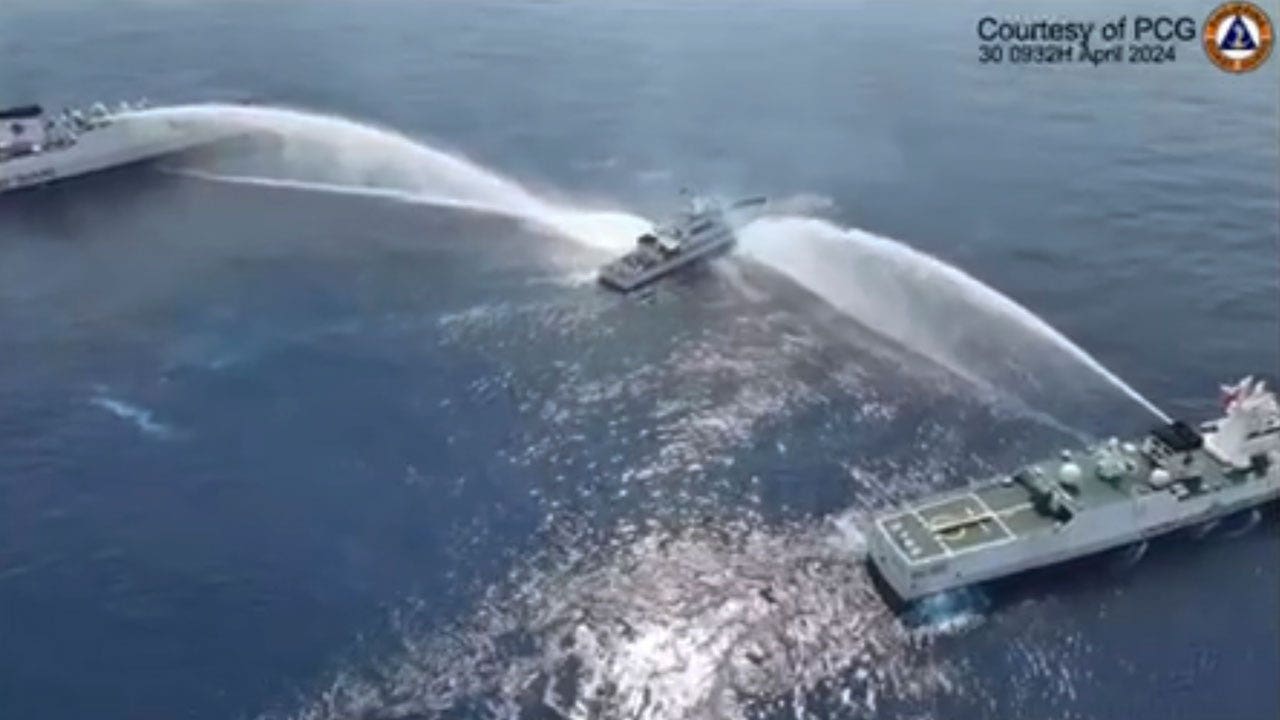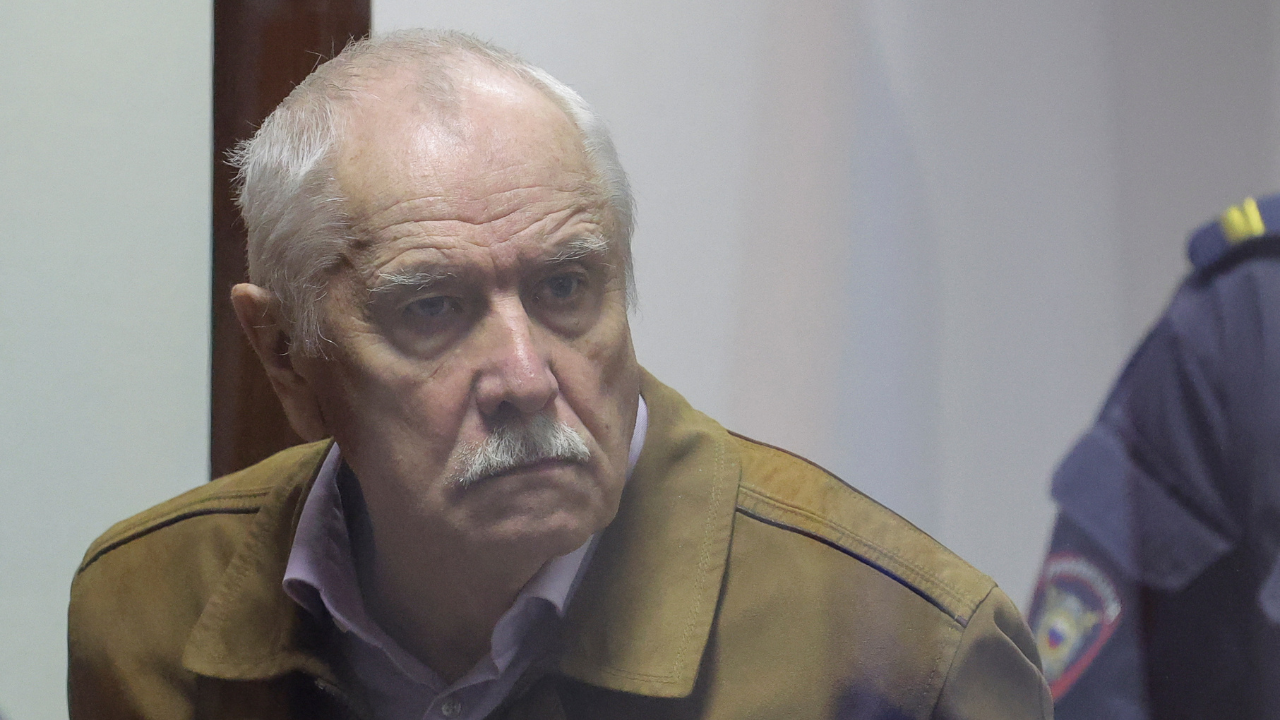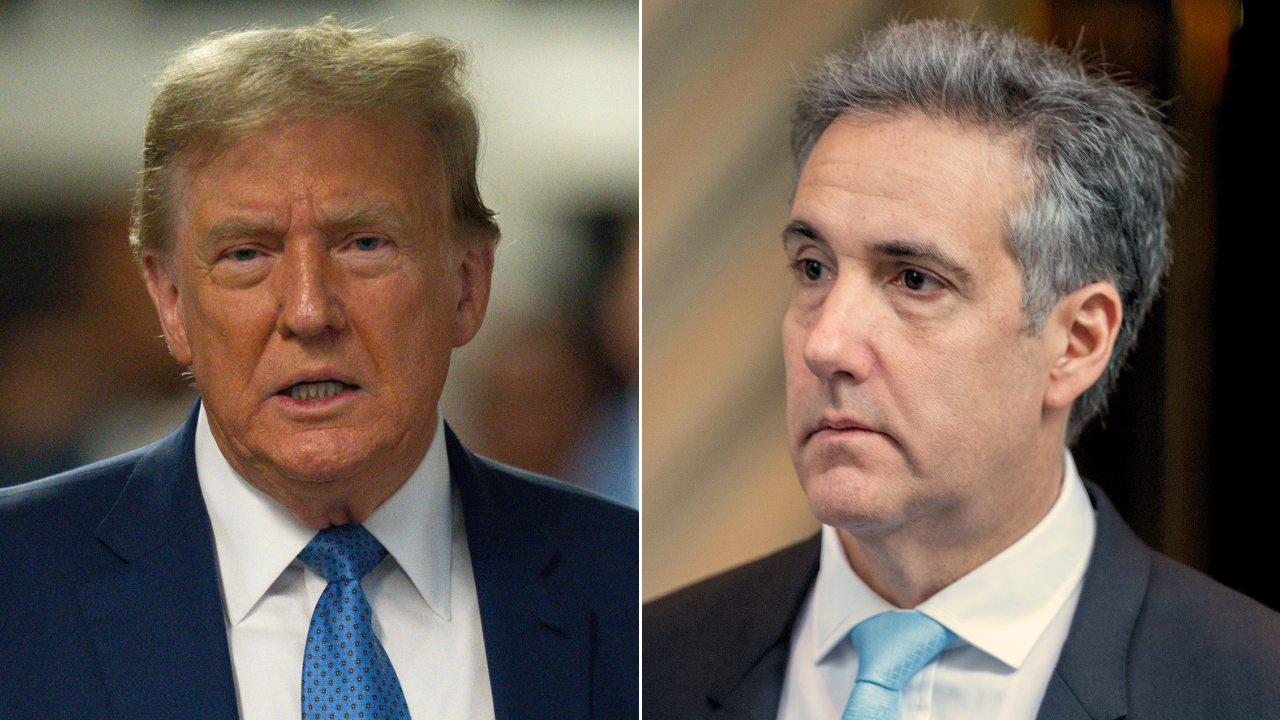World
Chinese coast guard fires water cannons at Philippine ships as tensions mount in South China Sea

Chinese coast guard ships fired water cannons at two Philippine patrol vessels Tuesday near a disputed shoal in the South China Sea, damaging both in the latest flare-up in an increasingly tense territorial conflict.
There were no immediate reports of injuries in the incident off Scarborough Shoal, one of two hotly disputed areas where confrontations between China and the Philippines have flared on and off since last year.
A Philippine coast guard ship and an accompanying fisheries vessel were patrolling the waters off Scarborough Shoal when four Chinese coast guard ships, backed by six suspected militia ships, executed dangerous blocking maneuvers, Philippine coast guard spokesperson Commodore Jay Tarriela said.
PHILIPPINES ISSUES ‘STRONGEST PROTEST’ AFTER CHINESE WATER CANNON ASSAULT ON NAVY BOAT
A Chinese coast guard ship used a water cannon against the fisheries vessel, the BRP Bankaw, and two other Chinese coast guard ships hit the Philippine coast guard ship, the BRP Bagacay, simultaneously from both sides, damaging part of its deck railing and a canopy, Tarriela added.
“China’s coast guard and maritime militia vessels harassed, blocked and rammed vessels of the Philippine coast guard and the Bureau of Fisheries and Aquatic Resources,” a Philippine government task force dealing with the territorial disputes said.
The Philippine fisheries vessel sustained damages, including to its electrical, navigation and radio systems, the task force said. A number of journalists who were invited to join the patrol witnessed the hostilities, it added.
A Philippine Coast Guard vessel is water cannoned by Chinese Coast Guards as it tries to approach the waters near Scarborough Shoal, locally known as Bajo De Masinloc, in the South China Sea on April 30, 2024. (Philippine Coast Guard via AP)
“China’s latest illegal and irresponsible behavior highlights its egregious disregard for the Philippines’ lawful exercise of its rights and entitlements in our own Exclusive Economic Zone,” the task force said.
The Philippine vessels pressed on with their patrol despite the Chinese coast guard’s actions, according to the Philippine coast guard. “They were not deterred and would persist in carrying out their legitimate operations to support Filipino fishermen and ensure their safety,” it added.
China called its action Tuesday a “necessary measure”. “The Philippines has violated China’s sovereignty with its actions,” said Gan Yu, spokesperson for China’s coast guard. “It will continue to carry out actions to defend its rights in the Chinese waters according to law, and will resolutely uphold our country’s maritime rights”, he insisted.
The Chinese coast guard has also re-installed a floating barrier across the entrance to the shoal’s vast fishing lagoon. The Philippine coast guard removed a similar barrier in the past to allow Filipinos to fish there.
China insists on its sovereignty over virtually all of the South China Sea, a key global trade route.
In addition to the Philippines and China, Vietnam, Malaysia, Brunei and Taiwan have also been involved in the territorial disputes.
The increasing frequency of the skirmishes between the Philippines and China, which have injured Filipino navy personnel and damaged supply boats in the past, has sparked fears the territorial conflict could degenerate into an armed confrontation that could put China and the United States on a collision course.
The U.S. lays no claims to the South China Sea but has warned that it is obligated to defend the Philippines, a longtime treaty ally, if Filipino forces, ships and aircraft come under an armed attack including in the contested waters.

World
Primo Cancelled at Freevee After ‘Short but Beautiful Run,’ Says Creator

ad
World
Russian physicist accused of treason sentenced to 14 years in prison

- Anatoly Maslov, a Russian physicist, has been sentenced to 14 years in prison for his alleged involvement in researching super-high flight speeds.
- This is the most recent in a series of treason cases that Russia has pursued against scientists researching super-high flight speeds.
- Maslov was a top scientist at the Khristianovich Institute of Theoretical and Applied Mechanics in the Siberian city of Novosibirsk.
Russia has brought a string of treason cases against scientists researching super-high flight speeds, an area that underpins its development of hypersonic missiles.
In the latest, physicist Anatoly Maslov was sentenced to 14 years on Tuesday.
President Vladimir Putin has boasted of Russia’s prowess in hypersonic missiles and Moscow has acknowledged using them in the Ukraine war.
RUSSIA’S MILITARY CLAIMS TO HAVE SHOT DOWN 10 U.S.-SUPPLIED MISSILES OVER CRIMEA AS BLINKEN VISITS UKRAINE
Here is a summary of the cases it has launched against scientists working in this sensitive field.
Russian physicist Anatoly Maslov, who was arrested in 2022 and accused of state treason, stands behind a glass wall of an enclosure for defendants before a court hearing in Saint Petersburg, Russia, on May 21, 2024. (REUTERS/Anton Vaganov)
ANATOLY MASLOV, ALEXANDER SHIPLYUK AND VALERY ZVEGINTSEV
All three were top scientists at the Khristianovich Institute of Theoretical and Applied Mechanics (ITAM) in the Siberian city of Novosibirsk. Maslov and Shiplyuk were arrested in 2022, and Zvegintsev the following year. In a rare open letter a year ago, colleagues said the three men were innocent and the cases against them were damaging Russian science. Details of the charges are secret, but two people familiar with Shiplyuk’s case have told Reuters he is accused of betraying secrets to China by handing over classified material at a conference there in 2017.
VLADISLAV GALKIN
Galkin worked at another Siberian university and had co-authored papers with Zvegintsev and Shiplyuk. His arrest was reported in December 2023, but BBC Russian said he was actually detained in April of that year. It quoted his wife as saying she had told their grandchildren he was on a business trip.
ALEXANDER KURANOV
Kuranov was handed a seven-year jail sentence for treason last month, after being accused of passing state secrets to foreign nationals. Maslov’s lawyer, without naming Kuranov, said the case against Maslov had been based on testimony against him from another person who got a seven-year term. At the time of his arrest in 2021, Kuranov was the general director of the St Petersburg-based Hypersonic Systems Research Facility, where he oversaw work on a new version of a Soviet-era hypersonic aircraft dubbed Ayaks.
ANATOLY GUBANOV AND VALERY GOLUBKIN
Both worked at TsAGI, the Central Aerohydrodynamic Institute based in Zhukovsky, near Moscow, where Gubanov was Golubkin’s boss.
Gubanov, arrested in December 2020, had been working on an international project called HEXAFLY-INT to develop a hypersonic civil aircraft powered by hydrogen fuel. In October 2023 he was found guilty of handing over state secrets and sentenced to 12 years.
Golubkin, arrested in April 2021, was jailed for 12 years in June 2023 after being found guilty of passing secrets to a NATO member state. However, the verdict was annulled last month and a new trial ordered.
VIKTOR KUDRYAVTSEV, ROMAN KOVALYOV AND VLADIMIR LAPYGIN
All three worked at TsNIIMash, a rocket and spacecraft center near Moscow which is a scientific subsidiary of space agency Roscosmos. Kudryavtsev was arrested on a treason charge in 2018, suspected of transferring secret information to a Belgian institute. He died of lung cancer in 2021, before the case came to trial.
Kovalyov, who worked with Kudryavtsev at TsNIIMash, was sentenced to seven years for treason in June 2020. He died of cancer in 2022.
Lapygin was convicted of treason in 2016 and sentenced to seven years, but was freed early in 2020.
World
Who is Ali Bagheri Kani, Iran’s acting foreign minister?

Ali Bagheri Kani, a 57-year-old political insider with a history of serving in Iran’s diplomatic and security apparatuses, has been appointed interim foreign minister following the death of the man he is replacing, Hossein Amirabdollahian.
Amirabdollahian died on Sunday in a helicopter crash in Iran’s mountainous East Azerbaijan province, alongside President Ebrahim Raisi and several other officials and staff.
Bagheri Kani is the logical choice to come in as acting foreign minister – he had been Amirabdollahian’s deputy for political affairs.
The new foreign minister was born in a village just north of the capital Tehran to a conservative family that helped establish and strengthen Iran.
Family members have had prominent roles in the country. His father, the now 98-year-old prominent cleric Mohammad-Bagher Bagheri Kani, is a former member of parliament and the Assembly of Experts, the clerical body tasked with appointing a successor to the 85-year-old Supreme Leader Ayatollah Ali Khamenei.
And his uncle, Mohammad Reza Mahdavi Kani, was a former acting prime minister and interior minister, who led the Assembly of Experts from 2010 until his death in 2014. The new acting foreign minister’s brother, Mesbah al-Hoda Bagheri Kani, is a son-in-law of Supreme Leader Ayatollah Ali Khamenei.
Bagheri Kani studied economics at Tehran’s Imam Sadiq University, a school that has produced many members of Iran’s government, and which used to be run by his father.
Close ally of Jalili
He started his diplomatic career at a regional desk of the Iranian Ministry of Foreign Affairs, and also did a brief stint as political analyst at state television.
He has been a longtime close associate of Saeed Jalili, a key ultraconservative figure within the establishment who now holds a senior position on Iran’s Supreme National Security Council (SNSC).
Like Jalili, Bagheri Kani’s name is mostly associated with the years-long talks surrounding Iran’s nuclear programme, and he served as Jalili’s deputy on the SNSC shortly after the latter was appointed secretary of the body in 2007, at a time of heightened tensions over the nuclear issue.
As the SNSC was at the time in charge of handling the nuclear file, Bagheri Kani also became a senior figure in the country’s negotiating team and held meetings with US and European officials.
Those negotiations ultimately fell through, and Iran was slapped with a series of harsh international sanctions.
Jalili eventually went on to run for president in 2013, wishing to put forward his pessimistic view towards any nuclear deal with the West. Bagheri Kani managed his election campaign, which failed.
The victory that year of the centrist Hassan Rouhani, who promised the lifting of sanctions and an end to Iran’s isolation, led Jalili and Bagheri Kani to become relatively sidelined.
Rouhani’s administration was able to agree on a nuclear deal, known formally as the Joint Comprehensive Plan of Action (JCPOA) with Western countries in 2015, but it did not last long, as US President Donald Trump withdrew from it unilaterally in 2018, and imposed even harder sanctions on Iran.
Aligned with Raisi
In 2019, Raisi, who ran for president in 2017 in an unsuccessful attempt to prevent Rouhani’s re-election, was appointed as the judiciary chief by Khamenei. It came as sanctions were taking their toll on the economy, and weakening the power of reformists and centrists.
Raisi brought Bagheri Kani into his team, appointing him as the head of international affairs of the judiciary. Bagheri Kani was also made the head of the human rights council of the judiciary, replacing Mohammad Javad Larijani, who had held the position for 14 years.
By the time President Joe Biden’s administration was in power in the US and Raisi had eventually won the Iranian presidency at the second attempt in 2021, efforts were under way to restore the JCPOA to reduce tensions.
Just before European-mediated talks with the US were slated to begin in late 2021, Bagheri Kani was appointed as chief negotiator, replacing veteran diplomat Abbas Araghchi, who had been instrumental in negotiating the nuclear deal.
The JCPOA continues to be in limbo, and Iran has now achieved the status of a threshold nuclear state, but talks are continuing with the International Atomic Energy Agency (IAEA), which Bagheri Kani will have to handle in cooperation with Iran’s nuclear agency.
Tehran has also kept lines of communication open with Europe, along with Washington, with mediated talks taking place in Oman this month. More negotiations aimed at reducing tensions amid Israel’s war on Gaza are expected soon, which would be overseen by the caretaker foreign minister.
Amirabdollahian, the late foreign minister, was active in representing Iran’s interests and alliances across the region during the war, taking tours to meet with top officials in Syria, Lebanon, Qatar and elsewhere.
Bagheri Kani is expected to carry on the torch, emphasising Tehran’s call for a ceasefire in Gaza and opposing Western presence and influence in the region, while backing its own allies.
-

 News1 week ago
News1 week agoSkeletal remains found almost 40 years ago identified as woman who disappeared in 1968
-

 World1 week ago
World1 week agoIndia Lok Sabha election 2024 Phase 4: Who votes and what’s at stake?
-

 World1 week ago
World1 week agoUkraine’s military chief admits ‘difficult situation’ in Kharkiv region
-

 Movie Reviews1 week ago
Movie Reviews1 week agoAavesham Movie Review
-

 World1 week ago
World1 week agoCatalans vote in crucial regional election for the separatist movement
-

 News1 week ago
News1 week agoTrump, Reciting Songs And Praising Cannibals, Draws Yawns And Raises Eyebrows
-

 Politics1 week ago
Politics1 week agoNorth Dakota gov, former presidential candidate Doug Burgum front and center at Trump New Jersey rally
-

 Movie Reviews1 week ago
Movie Reviews1 week agoUnfrosted Movie Review: A sweet origins film which borders on the saccharine














